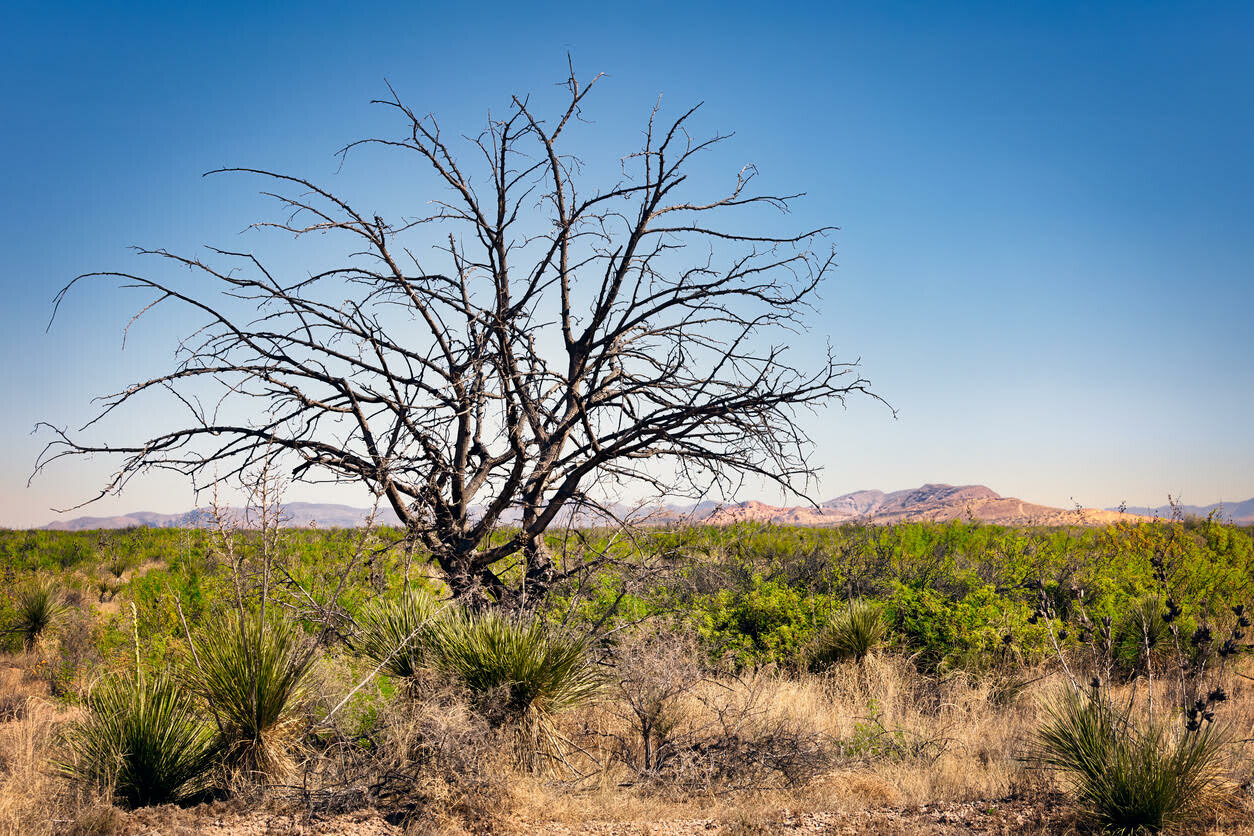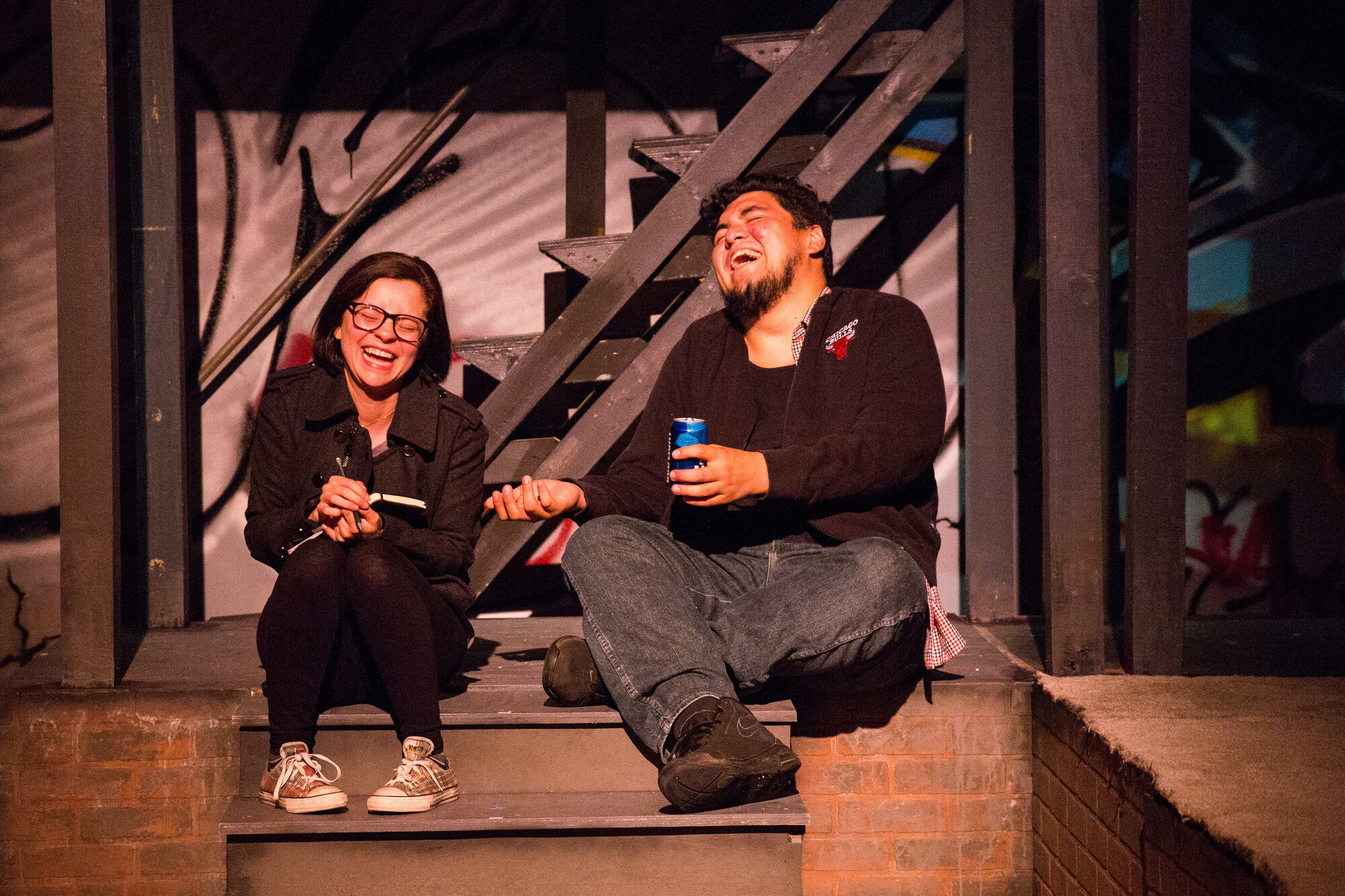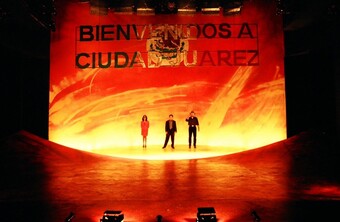Legendary bolero José Alfredo Jiménez would be hard-pressed to sing a scenario as heart-wrenching as your daily life if you’re one of millions of Latinx people caught in the crosshairs of climate change. Our lives are defined by questions about what to do when your environment turns toxic, who to call when your sense of place vanishes, where to turn when your most treasured cultural icons wither away, and, ultimately, why you stay here. These questions provoked me to write Arbolito, a play about the excruciating choices Latinx communities face as we tiptoe around environmental hazards we didn’t ask for but somehow inherited. It is play about living with the consequences of someone else’s environmental choices.
"Latino communities from Texas to California to Puerto Rico are the hardest hit when these climate-induced disasters occur," says Michael Méndez, who studies climate policy and environmental justice at the University of California Irvine. "They absolutely have a real-world connection to our changing climate." In other words, for many Latinx communities, the story of climate change is the story of our lives, both present and past.
For hundreds of years, Latinx Texans bound our livelihoods and our lore to the natural environment. Especially in our rural communities, we found wisdom in the mundane and the holy alike, from agricultural work to family barbacoas. We planted roots in the comforting context of land, air, and water. But as the United States leaned into the economic buffet offered by the North American Free Trade Agreement (NAFTA), these same familias found themselves in the toxic wake of unchecked economic expansion. As superhighways sprung up and eighteen-wheelers careened through the river valley spewing unmonitored exhaust, people found themselves forced to choose between a harmonious way of life and a profitable one. Between consumer culture and cultural conscience. For many Latinx people, this is a choice between making a living and making a life. That choice haunts the characters and motivates the action in Arbolito.
By taking a stand for Arbolito, she is taking a stand for herself and all Latinx people.
Arbolito inhabits a place I know well, my home state of Texas, in a very unnatural state of flux. Layering history, humor, regional cues, and magical realism, Arbolito mines human aftershocks of a destructive and all-too-common energy production practice: hydraulic fracturing, or “fracking.” On the surface, fracking transforms sleepy Texas towns from Kermit to Comstock into shining, if fleeting, boomtowns. Beneath the ground, however, the act of blasting pressurized liquid through aquifer-protecting rock formations (to allow access to natural gas, of course) poisons water sources and obliterates landscapes. The human cost of fracking is even more extreme. In addition to chronic stress and depression, communities where fracking occurs experience lung disease, cancer, heart attacks, and negative birth outcomes with greater frequency than non-fracking communities. This human story must be told.
In the play, a magical tree, “Arbolio,” thrives in precisely the place a towering tree should not: the harsh Chihuahuan desert. How does it do this? It’s simple. Magic. Locals’ tears keep Arbolito alive: tears of hardship, heartbreak, frustration, even loss. In the harshest of environments, Arbolito flourishes as both testament and antidote to Latinx people’s hard lives. But something is changing. After generations of vigor, Arbolito’s once-stately branches droop, and as Arbolito clings to life, its local caretakes—the world-weary Esther and her idealistic niece, Octavia—clash over whether to or how to save the local legend.














Comments
The article is just the start of the conversation—we want to know what you think about this subject, too! HowlRound is a space for knowledge-sharing, and we welcome spirited, thoughtful, and on-topic dialogue. Find our full comments policy here